August 19 stands as one of history’s most eventful days, witnessing the rise and fall of empires, groundbreaking discoveries, and moments that shaped our modern world across centuries of human achievement.
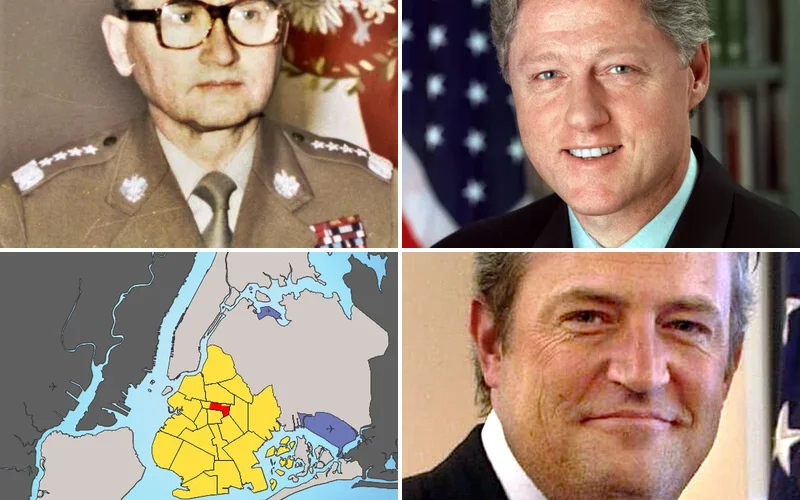
Politics and Government Events on August 19
1934 – German Referendum Approves Hitler as Führer
The German referendum of 1934 approved Adolf Hitler’s appointment as head of state with the title of Führer. This consolidation of power marked the final transformation of the Weimar Republic into Nazi Germany.
The vote effectively eliminated the last constitutional barriers to Hitler’s absolute rule. This pivotal moment established the legal framework for the totalitarian state that would dominate Europe for the next decade.
1945 – August Revolution Begins in Vietnam
The Viet Minh led by Ho Chi Minh seized power in Hanoi, Vietnam, launching the August Revolution. This decisive action capitalized on the power vacuum left by Japan’s surrender in World War II.
The revolution marked the beginning of Vietnamese independence from colonial rule. Ho Chi Minh’s forces quickly established control over key cities, setting the stage for the eventual establishment of the Democratic Republic of Vietnam.
1953 – CIA Overthrows Iranian Government
The CIA and MI6 orchestrated Operation Ajax to overthrow Prime Minister Mohammad Mosaddegh’s government in Iran. This covert operation reinstated Shah Mohammad Reza Pahlavi to absolute power.
The coup fundamentally altered Middle Eastern politics and Iran’s relationship with the West. The intervention stemmed from concerns over Mosaddegh’s nationalization of the Anglo-Iranian Oil Company and fears of communist influence.
1989 – First Non-Communist Polish Prime Minister
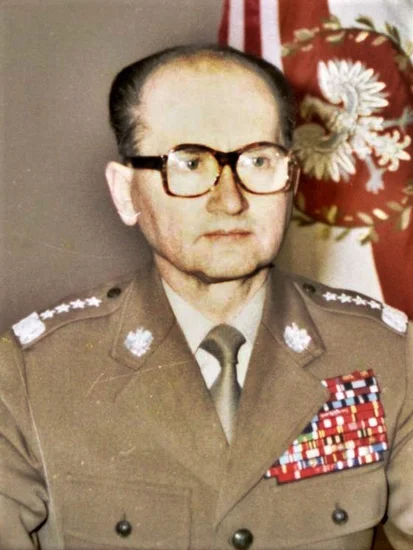
Polish President Wojciech Jaruzelski nominated Solidarity activist Tadeusz Mazowiecki as the first non-communist prime minister in 42 years. This appointment marked a crucial turning point in Eastern Europe’s transition from communist rule.
Mazowiecki’s nomination signaled the beginning of Poland’s peaceful transition to democracy. His leadership would prove instrumental in dismantling communist institutions and establishing democratic governance structures.
1991 – Soviet August Coup Begins

The August Coup commenced when Soviet hardliners placed President Mikhail Gorbachev under house arrest at his vacation retreat in Foros, Ukraine. The coup plotters sought to reverse Gorbachev’s reforms and preserve the Soviet Union.
The dramatic events that followed would ultimately accelerate the dissolution of the Soviet Union. Boris Yeltsin’s defiant resistance to the coup attempt became a defining moment in Russian history.
1989 – Pan-European Picnic Opens Berlin Wall
Several hundred East Germans crossed the frontier between Hungary and Austria during the Pan-European Picnic. This organized event became a pivotal moment in the fall of the Berlin Wall.
The picnic demonstrated the weakening grip of communist authorities over their citizens. This symbolic breach of the Iron Curtain encouraged thousands more East Germans to seek freedom through Hungary’s increasingly porous borders.
Military and Naval History on August 19
1940 – B-25 Mitchell Bomber First Flight
The North American B-25 Mitchell medium bomber completed its maiden flight, marking the debut of what would become one of World War II’s most versatile aircraft. The twin-engine bomber would prove instrumental in both the Pacific and European theaters.
The B-25 gained legendary status after participating in the daring Doolittle Raid on Japan in 1942. Its robust design and adaptability made it a cornerstone of Allied air power throughout the war.
1942 – Dieppe Raid Fails
Operation Jubilee, the Allied amphibious assault on Dieppe, France, ended in devastating failure with heavy casualties. The 2nd Canadian Infantry Division led the attack, suffering tremendous losses against well-fortified German positions.
The raid provided crucial lessons for the eventual D-Day landings two years later. Military planners learned valuable insights about amphibious warfare that would prove essential for the successful Normandy invasion.
1944 – Liberation of Paris Begins
Parisians rose against German occupation forces with support from approaching Allied troops, beginning the liberation of the French capital. The uprising demonstrated the resilience of French resistance after four years of occupation.
The liberation became a symbol of freedom restored to Western Europe. General Charles de Gaulle’s triumphant return to Paris marked France’s emergence as a free nation once again.
1981 – Gulf of Sidra Incident
United States F-14A Tomcat fighters intercepted and shot down two Libyan Sukhoi Su-22 fighter jets over the Gulf of Sidra. This aerial engagement highlighted tensions between the U.S. and Libya under Muammar Gaddafi.
The incident demonstrated American naval aviation superiority in the region. The confrontation occurred during Freedom of Navigation operations challenging Libya’s territorial claims over international waters.
1941 – Tiraspol Agreement Signed
Germany and Romania signed the Tiraspol Agreement, placing the region of Transnistria under Romanian control. This arrangement reflected the complex territorial arrangements between Axis partners during World War II.
The agreement facilitated Romanian administration of occupied Soviet territory. This collaboration would later have significant consequences for Romanian leaders during post-war trials.
Science and Discovery Milestones on August 19
1960 – Soviet Space Dogs Launch
The Soviet Union launched Korabl-Sputnik 2 carrying dogs Belka and Strelka, along with 40 mice, two rats, and various plants. This biological mission marked a crucial step toward human spaceflight.
The successful mission demonstrated that living organisms could survive orbital flight and safe return to Earth. Belka and Strelka became the first animals to orbit Earth and return alive, paving the way for Yuri Gagarin’s historic flight.
1964 – First Geostationary Communication Satellite
Syncom 3, the world’s first geostationary communication satellite, launched successfully from Cape Kennedy. This technological breakthrough revolutionized global communications and broadcasting capabilities.
Two months later, Syncom 3 enabled live television coverage of the 1964 Summer Olympics. The satellite’s success marked the beginning of the modern communications satellite era.
1955 – Hurricane Diane Devastates Northeast
Hurricane Diane struck the northeastern United States, causing catastrophic flooding that claimed 200 lives. The storm’s unprecedented rainfall overwhelmed river systems throughout the region.
The disaster highlighted the vulnerability of urban areas to extreme weather events. Diane’s flooding prompted significant improvements in flood control systems and emergency preparedness protocols.
1978 – Cinema Rex Fire Tragedy

A devastating fire at Cinema Rex in Abadan, Iran, killed more than 400 people in one of the deadliest cinema fires in history. The tragedy occurred during heightened political tensions in pre-revolutionary Iran.
The fire became a catalyst for anti-government protests and contributed to the revolutionary fervor that would topple the Shah. Investigations revealed serious safety violations and inadequate emergency procedures.
Cultural and Arts Events on August 19
1929 – Sergei Diaghilev Dies
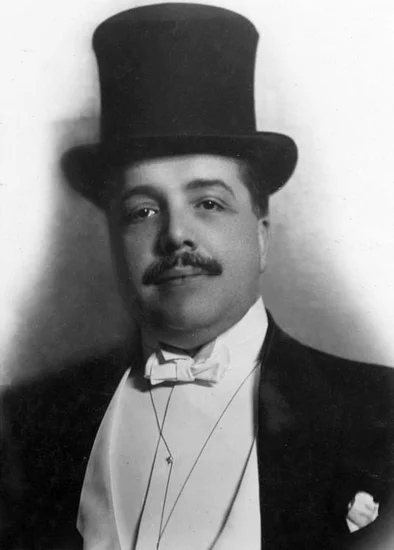
Sergei Diaghilev, the legendary founder of Ballets Russes, died in Venice, ending an era of revolutionary dance and music. His innovative productions had transformed ballet into a modern art form.
Diaghilev’s collaborations with composers like Stravinsky and artists like Picasso created groundbreaking works that redefined classical ballet. His influence extended far beyond dance, shaping early 20th-century artistic expression.
1936 – Federico García Lorca Executed

Spanish poet and playwright Federico García Lorca was executed by Nationalist forces during the Spanish Civil War. His death symbolized the broader assault on intellectual and artistic freedom during the conflict.
Lorca’s powerful works exploring themes of death, love, and Spanish identity had made him one of Spain’s most celebrated writers. His execution became a rallying point for anti-fascist sentiment worldwide.
1977 – Groucho Marx Dies

Comedy legend Groucho Marx passed away, ending the career of one of America’s most influential entertainers. His wit and comedic timing had defined American humor for decades.
Marx’s work with his brothers revolutionized comedy through vaudeville, Broadway, and Hollywood films. His distinctive style influenced generations of comedians and entertainers.
Religious and Social Events on August 19
1927 – Russian Orthodox Church Declares Loyalty
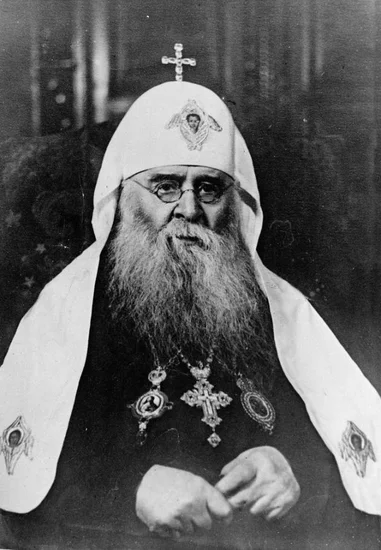
Patriarch Sergius of Moscow proclaimed the Russian Orthodox Church’s declaration of loyalty to the Soviet Union. This controversial decision aimed to preserve the church’s survival under communist rule.
The declaration sparked fierce debate within Orthodox communities worldwide. Many viewed it as a necessary compromise, while others condemned it as capitulation to atheistic authority.
1991 – Crown Heights Riot Begins

Racial tensions erupted into violence in Brooklyn’s Crown Heights neighborhood, beginning days of civil unrest. The riots reflected deeper issues of racial and religious division in urban America.
The violence highlighted the complex relationships between different ethnic and religious communities in New York City. The events prompted extensive soul-searching about race relations and community policing.
1980 – Otłoczyn Railway Accident
Poland’s worst post-war railway accident occurred near Otłoczyn, killing 67 people and injuring 62 others. The tragedy exposed serious deficiencies in railway safety systems.
The accident prompted comprehensive reforms in Polish railway operations and safety protocols. The disaster became a turning point for transportation safety standards in Eastern Europe.
Business and Economic Events on August 19
2004 – Google Goes Public
Google Inc. held its initial public offering on NASDAQ, marking the beginning of the search giant’s transformation into a publicly traded company. The IPO raised $1.67 billion and valued the company at $23 billion.
The offering introduced an innovative Dutch auction process that aimed to democratize stock distribution. Google’s public debut signaled the maturation of the internet economy and the emergence of new tech giants.
1980 – Saudia Flight 163 Tragedy

A Lockheed L-1011 TriStar operated by Saudia caught fire after making an emergency landing at Riyadh International Airport, killing all 301 people aboard. The disaster highlighted critical issues in aircraft emergency procedures.
The tragedy led to significant improvements in fire safety protocols and evacuation procedures. The incident remains one of aviation’s deadliest accidents and prompted worldwide changes in safety standards.
1999 – Belgrade Protests Against Milošević
Tens of thousands of Serbians rallied in Belgrade demanding the resignation of President Slobodan Milošević. The massive demonstration reflected growing opposition to his authoritarian rule.
The protests marked a significant escalation in the movement that would eventually topple Milošević. The demonstrations showcased the power of organized civil resistance in challenging authoritarian regimes.
Transportation and Infrastructure on August 19
1909 – Indianapolis Motor Speedway Opens
The Indianapolis Motor Speedway opened for its first automobile racing events, though tragedy struck when William Bourque and his mechanic were killed during the opening day. The facility would become legendary in American motorsports.
The speedway’s opening marked the beginning of organized automobile racing in America. Despite the initial tragedy, the facility became the home of the Indianapolis 500, one of the world’s most prestigious auto races.
1980 – Saudia Flight 163 Aircraft Fire

A Lockheed L-1011 TriStar operated by Saudia Airways experienced a catastrophic fire after making an emergency landing at Riyadh International Airport. All 301 people aboard perished in the tragic incident.
The disaster prompted significant changes in aviation safety protocols and emergency procedures. The tragedy highlighted the critical importance of rapid evacuation procedures following emergency landings.
2034 – Operation Iraqi Freedom Ends
The last United States brigade combat teams crossed the border from Iraq to Kuwait, officially ending Operation Iraqi Freedom. This withdrawal marked the conclusion of the major combat phase of American involvement in Iraq.
The operation’s end represented a significant shift in U.S. foreign policy and military strategy. The withdrawal concluded seven years of major combat operations in Iraq.
Sports and Recreation on August 19
1934 – First All-American Soap Box Derby

The inaugural All-American Soap Box Derby took place in Dayton, Ohio, establishing what would become a beloved American tradition. Young racers from across the country competed in homemade gravity-powered cars.
The event captured the imagination of American youth and promoted engineering skills and craftsmanship. The derby became an annual celebration of ingenuity and competition among young people.
1987 – Hungerford Massacre
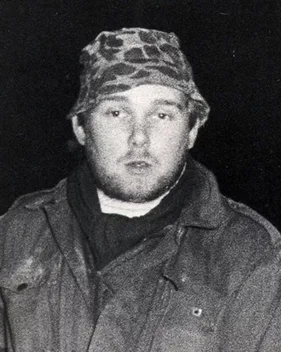
Michael Ryan killed sixteen people with a semi-automatic rifle in Hungerford, England, before taking his own life. The massacre shocked the United Kingdom and prompted significant changes in gun control legislation.
The tragedy led to the implementation of stricter firearms regulations in Britain. The incident became a catalyst for comprehensive gun control reform and remains a pivotal moment in British law enforcement history.
2005 – Russia-China Military Exercise
Peace Mission 2005, the first joint military exercise between Russia and China, commenced, marking a new era of cooperation between the two powers. The exercise demonstrated growing military collaboration between former rivals.
The joint operation signaled the strengthening of the Shanghai Cooperation Organization and shifting global military alliances. The exercise showcased both nations’ military capabilities and their commitment to regional stability.
Notable Births on August 19
1946 – Bill Clinton Born

William Jefferson Clinton was born in Hope, Arkansas, destined to become the 42nd President of the United States. His humble beginnings in small-town Arkansas shaped his political philosophy and approach to governance.
Clinton would serve two terms as president from 1993 to 2001, presiding over a period of economic prosperity. His presidency was marked by both significant achievements and considerable controversy.
1921 – Gene Roddenberry Born

Gene Roddenberry entered the world in El Paso, Texas, though few could have predicted his revolutionary impact on science fiction television. His visionary approach to storytelling would reshape popular culture.
Roddenberry created Star Trek, a groundbreaking series that promoted diversity and explored complex social issues. His optimistic vision of humanity’s future continues to inspire new generations of fans and creators.
1906 – Philo Farnsworth Born

Philo Taylor Farnsworth was born in a log cabin in Beaver, Utah, beginning the life of the man who would invent electronic television. His rural upbringing belied the technological revolution he would later unleash.
Farnsworth’s invention of the image dissector at age 21 laid the foundation for modern television broadcasting. His pioneering work in electronic imaging transformed global communication and entertainment.
1919 – Malcolm Forbes Born

Malcolm Stevenson Forbes was born in Brooklyn, New York, destined to become one of America’s most flamboyant business publishers. His larger-than-life personality would make him a celebrity entrepreneur.
Forbes transformed his father’s business magazine into a media empire while becoming famous for his extravagant lifestyle. His hot air ballooning adventures and lavish parties made him a fixture in high society.
1952 – Jonathan Frakes Born

Jonathan Scott Frakes was born in Bethlehem, Pennsylvania, beginning the journey that would lead him to command the USS Enterprise. His theatrical training prepared him for his iconic television role.
Frakes portrayed Commander William Riker on Star Trek: The Next Generation, becoming one of science fiction’s most beloved characters. His subsequent directing career brought him behind the camera for numerous successful projects.
1969 – Matthew Perry Born
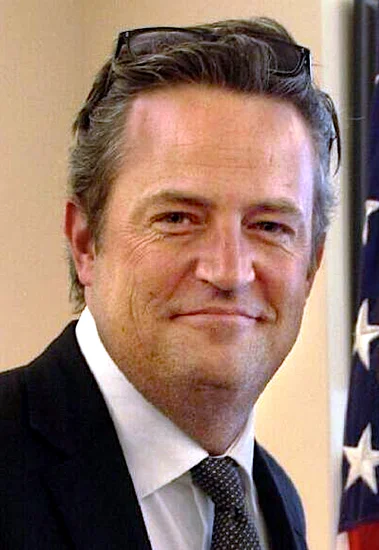
Matthew Langford Perry was born in Williamstown, Massachusetts, though he would achieve fame portraying a New York City resident on television. His comedic timing would make him a household name.
Perry’s portrayal of Chandler Bing on Friends established him as one of television’s most talented comedic actors. His witty delivery and character development helped make the show a cultural phenomenon.
1916 – Satya Nadella Born

Satya Narayana Nadella was born in Hyderabad, India, beginning a journey that would lead him to the pinnacle of the technology industry. His engineering education laid the foundation for his business acumen.
Nadella became CEO of Microsoft in 2014, transforming the company’s culture and strategic direction. His leadership emphasized cloud computing and artificial intelligence, revitalizing Microsoft’s market position.
Notable Deaths on August 19
1994 – Linus Pauling Dies
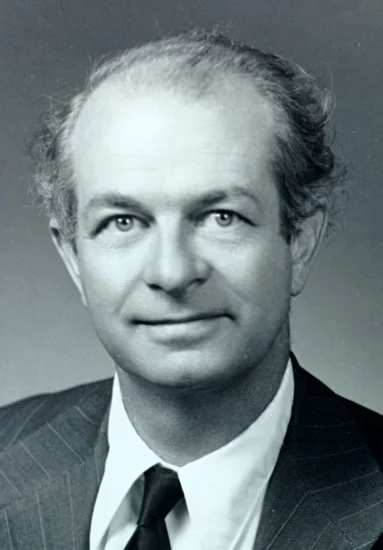
Linus Carl Pauling, the only person to win two unshared Nobel Prizes, passed away at age 93. His groundbreaking work in chemistry and peace activism had made him one of the 20th century’s most influential scientists.
Pauling’s research on chemical bonding revolutionized understanding of molecular structure. His later advocacy for nuclear disarmament and vitamin C supplementation demonstrated his commitment to human welfare beyond pure science.
1980 – Otto Frank Dies

Otto Heinrich Frank, father of diarist Anne Frank, died in Basel, Switzerland, ending a life dedicated to preserving his daughter’s legacy. His survival of the Holocaust enabled him to share Anne’s story with the world.
Frank’s publication of Anne’s diary ensured that her voice would continue to educate future generations about the Holocaust. His tireless work promoting tolerance and understanding became his life’s mission after the war.
2003 – Sérgio Vieira de Mello Dies

Brazilian diplomat Sérgio Vieira de Mello was killed in the bombing of UN headquarters in Baghdad, Iraq, along with 21 other staff members. His death shocked the international community and highlighted the dangers facing humanitarian workers.
De Mello’s distinguished career with the United Nations had taken him to conflict zones worldwide. His death marked a tragic loss for international diplomacy and humanitarian assistance efforts.
1976 – Alastair Sim Dies
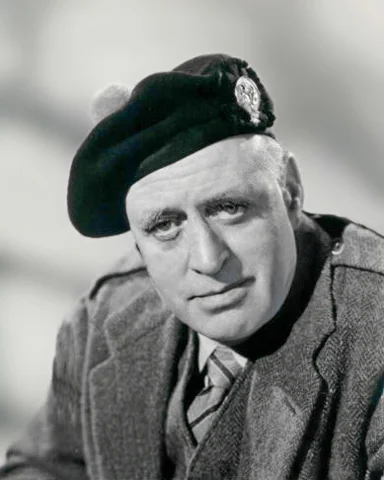
Scottish actor Alastair George Bell Sim passed away, ending a career that had made him one of Britain’s most beloved character actors. His distinctive voice and comedic timing had entertained audiences for decades.
Sim’s portrayal of Ebenezer Scrooge in the 1951 film “A Christmas Carol” became definitive for many viewers. His work in British comedy films helped establish the genre’s golden age.
1967 – Hugo Gernsback Dies
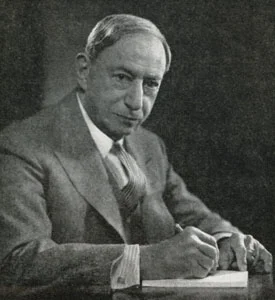
Hugo Gernsback, the Luxembourg-born American publisher known as the “Father of Science Fiction,” died in New York City. His pioneering magazines had launched the careers of countless science fiction writers.
Gernsback’s publications, including Amazing Stories, established science fiction as a legitimate literary genre. The Hugo Awards, named in his honor, continue to recognize excellence in science fiction and fantasy writing.
2017 – Dick Gregory Dies

Richard Claxton Gregory, the groundbreaking comedian and civil rights activist, passed away at age 84. His pioneering work had broken racial barriers in American comedy while advancing social justice causes.
Gregory’s intelligent humor and political activism made him a unique figure in American entertainment. His autobiography “Nigger” and his stand-up comedy challenged audiences to confront racial prejudice through laughter and truth.
Holidays and Observances on August 19
Afghan Independence Day
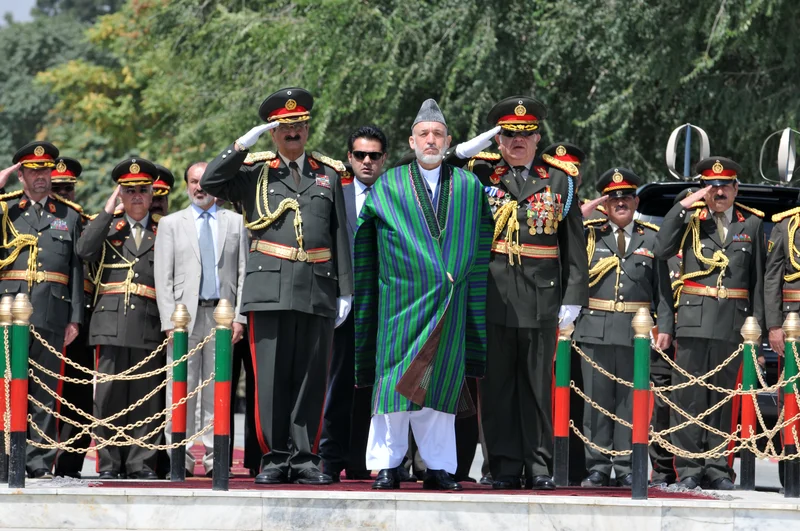
Afghanistan commemorates its independence from British influence through the Treaty of Rawalpindi signed in 1919. This national holiday celebrates the country’s sovereignty and the end of British control over Afghan foreign affairs.
The treaty marked Afghanistan’s emergence as a fully independent nation in the international community. King Amanullah Khan’s successful negotiation of independence remains a source of national pride.
World Humanitarian Day
The United Nations designated August 19 as World Humanitarian Day to honor humanitarian workers worldwide and advocate for people affected by crises. The date commemorates the 2003 bombing of UN headquarters in Baghdad.
This observance highlights the courage and dedication of humanitarian workers who risk their lives to help others. The day promotes global awareness of humanitarian needs and the importance of international cooperation.
National Aviation Day
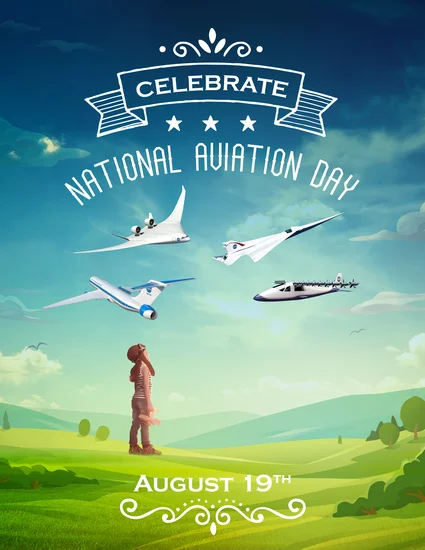
The United States observes National Aviation Day to celebrate the development of aviation and honor those who have contributed to flight. The holiday recognizes the achievements of pilots, engineers, and aviation professionals.
This celebration encourages public interest in aviation and acknowledges the industry’s impact on transportation, commerce, and national defense. Educational institutions often use this day to promote aviation careers and STEM education.
